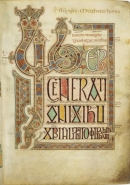| Genesis | Exodus | Leviticus | Numbers | Deuteronomy | Joshua | Judges | Ruth |
| 1 Samuel | 2 Samuel | 1 Kings | 2 Kings | 1 Chronicles | 2 Chronicles | Ezra |
| Nehemiah | Esther | Job | Psalms | Proverbs | Ecclesiastes | Song of Solomon |
| Isaiah | Jeremiah | Lamentations | Ezekiel | Daniel | Hosea | Joel | Amos | Obadiah |
| Jonah | Micah | Nahum | Habakkuk | Zephaniah | Haggai | Zechariah | Malachi |
| Tobit | Judith | Additions to Esther | Wisdom of Solomon | Ecclesiasticus | Baruch |
| Letter of Jeremiah | Prayer of Azariah | Susanna | Bel & the Dragon | 1 Maccabees |
| 2 Maccabees | 1 Esdras | 2 Esdras |
| Matthew | Mark | Luke | John | Acts | Romans | 1 Corinthians | 2 Corinthians |
| Galatians | Ephesians | Philippians | Colossians | 1 Thessalonians | 2 Thessalonians |
| 1 Timothy | 2 Timothy | Titus | Philemon | Hebrews | James | 1 Peter | 2 Peter |
| 1 John | 2 John | 3 John | Jude | Revelation |
 The Book:
The Book:
The Book of Judith is a deuterocanonical book, included in the Septuagint and in the Roman Catholic and Orthodox Christian Old Testament of the Bible, but excluded by Jews and Protestants. It has been said that the book contains numerous historical anachronisms, which is why many scholars now accept it as unreliable history — it has been considered a parable or perhaps the first historical novel.
The name Judith is Hebrew ("Praised" or "Jewess"), the feminine form of Judah.
The Book of Judith has a dramatic setting that appealed to Jewish patriots and it warned of the urgency of adhering to Mosaic law, generally speaking, but what accounted for its enduring appeal was the drama of its narrative.
The subject: a daring and beautiful woman in her full maturity, dressed for the feast with all her spectacular jewels, accompanied by an apprehensive maid, succeeds in decapitating the invading general Holofernes (possibly Essarhaddon). The moral is as much about the dangers of a beautiful woman, as had been told of Delilah and Samson but here the woman was a culture-hero to the listeners.
As a historical tale, its scenes are enlivened and given immediacy by their setting in a definitely characterized (though anachronistic) setting and time and connected, as all historical novels are, with important personages of history — here "Nebuchadnezzar" as a "King of Assyria" who reigns in Nineveh — features it shares with the Book of Esther, the Book of Daniel and its continuations, and the Book of Tobit. Nowhere are the "historical" details introduced in more profusion than in Judith.
With the very first words of the tale, "In the twelfth year of the reign of Nebuchadnezzar, who reigned over the Assyrians in Nineveh," it is argued by the Jewish encyclopedia that the narrator sets his story in "Once upon a time". However some Catholic scholars propose that this "Nebuchadnezzar" is King Sargon, whom they consider to be the same as Sennacherib.
The city called "Bethulia," (properly "Betylua") and the narrow and strategic pass into Judea that it occupies (Judith IV:7ff VIII:21-24) are believed by many to be fictional settings but some suggest that a city called Meselieh is Bethulia.
The editors of the Jewish Encyclopedia identified Holofernes' encampment with Shechem. The Assyrians, instead of attempting to force the pass, lay siege to the city and cut off its water supply. Judith, the magnificent widow, works deliverance for her city — and thus saves all the kingdom of Judea — by charming the Assyrian captain, Holofernes, then cutting off his head as he sleeps. Thus, Nebuchadnezzar's attempt to conquer Judah (which was successful and quite devastating in reality) is foiled in the narrative.
The Book of Judith was originally written in Hebrew. Though its oldest versions have been translated into Greek and have not been preserved in the original language, its Hebrew origin is revealed in details of vocabulary and phrasing. The extant Hebrew language versions, whether identical to the Greek, or in the shorter Hebrew version which contradicts the longer version in many specific details of the story, are medieval.
Even though the Book of Judith is not part of the official Jewish religious canon, its narrative is associated by many within Orthodox Judaism who place it in the Hellenistic period when Judea battled the Seleucid monarchs. It is regarded as a story related to the events surrounding the military struggle of that time and is believed to be a true reference to the background events leading up to the Jewish holiday of Hanukkah. (See also 1 Maccabees and 2 Maccabees)
Source: Wikipedia, the free encyclopedia © 2001-2006 Wikipedia contributors
(Disclaimer)
This article is licensed under the GNU Free Documentation Licence.
View this article at Wikipedia.org
 Print this page
Print this page